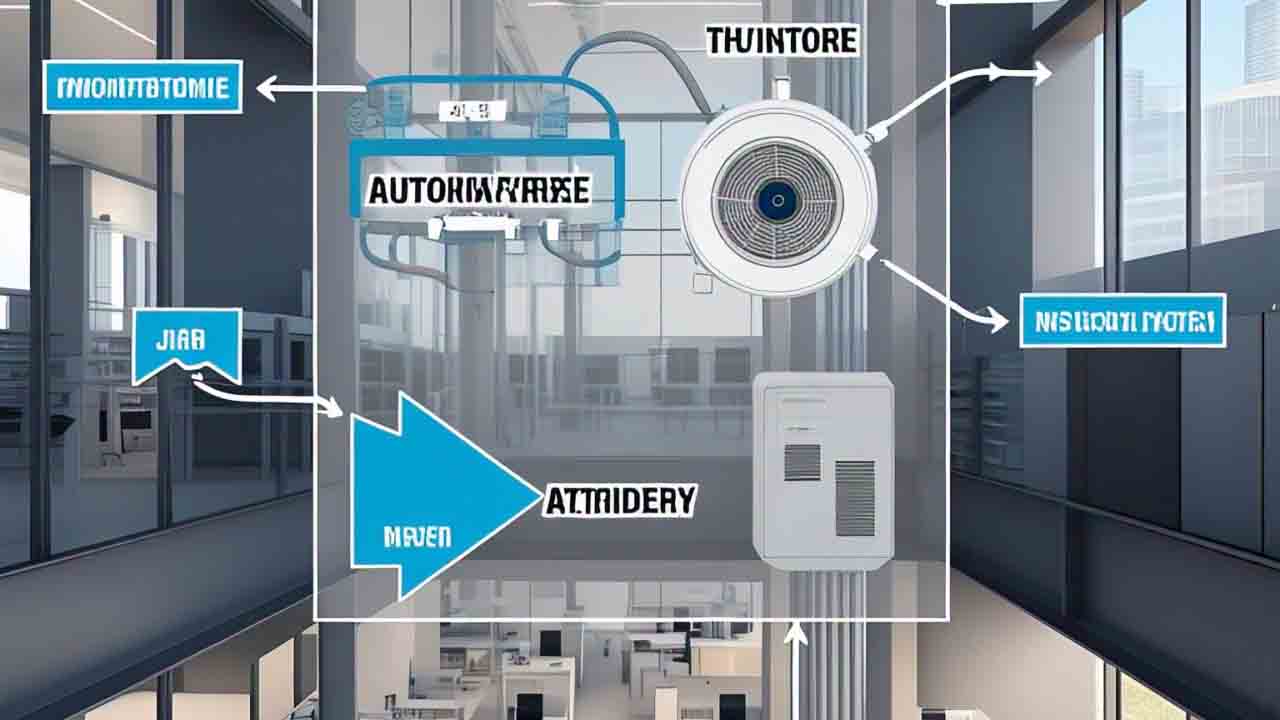
Eobdtool – Smart HVAC Systems are redefining how buildings maintain comfort and efficiency in the 21st century. As global energy demands rise and climate-conscious innovation becomes a priority, automatic heating, ventilation, and air conditioning systems are emerging as essential components of modern infrastructure. From corporate offices to data centers, these intelligent systems are not only improving comfort but also minimizing energy waste and reducing environmental impact.
At the core of Smart HVAC Systems lies the integration of sensor-based automation. These systems rely on a network of temperature, humidity, and motion sensors to detect real-time environmental changes and occupancy levels. Whether a room is crowded during a business meeting or completely vacant after hours, the system automatically adjusts airflow, temperature, and energy consumption accordingly.
This level of responsiveness is not only convenient it’s revolutionary. Smart HVAC Systems eliminate the need for manual thermostat control, instead relying on predictive algorithms and AI to maintain optimal indoor conditions around the clock. This kind of intelligent climate control ensures that buildings are not overcooled or overheated, striking a fine balance between user comfort and operational efficiency.
“Avoid Caffeine and Alcohol Before Bed for Better Sleep”
What sets Smart HVAC Systems apart is their ability to integrate seamlessly with other smart building technologies. Through centralized apps or cloud-based platforms, users can monitor, manage, and even automate HVAC performance remotely. These systems can be programmed to respond to weather forecasts, time-of-day schedules, or even personalized preferences for individual rooms or zones within a building.
In high-performance buildings, Smart HVAC Systems are often linked with lighting controls. Air quality monitors, and occupancy sensors, creating a unified and efficient ecosystem. This cross-platform functionality not only improves the user experience but also significantly lowers operational costs over time.
Beyond convenience and cost savings, Smart HVAC Systems play a critical role in sustainability. By reducing unnecessary energy consumption. They help lower a building’s carbon footprint a crucial step in the fight against climate change. Businesses adopting these systems not only benefit from lower utility bills but also align themselves with global green building standards.
As the demand for smarter, greener infrastructure grows, Smart HVAC Systems are proving to be more than just a trend. They are the blueprint for the buildings of tomorrow intelligent, adaptive, and sustainable.
With innovation at their core, these systems are not just upgrading air quality. They’re transforming how we live and work, one smart breath at a time.
“Experience Paradise: Savaya Bali’s Stunning Views”
Eobdtool - Enhancing office security has become a critical focus for businesses as technology advances. Modern solutions such as biometric…
Eobdtool - AI-driven revolution has drastically transformed the landscape of mobile accessories, introducing intelligent functionalities that enhance user experience and…
Eobdtool - 4K monitors have become a central focus as the gaming industry continues to evolve, with the demand for…
Eobdtool - The world of home appliances continues to evolve with technology, and in recent years, smart laundry appliances have…
Eobdtool - In the evolving landscape of smart home technology, Z-Wave's New Era marks a significant shift as the protocol…
Eobdtool - In today’s fast-paced digital world, convenience is key, and the SanDisk iXpand Flash Drive offers the perfect solution…